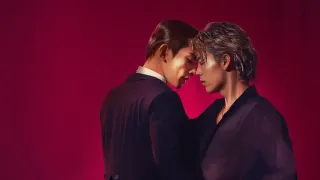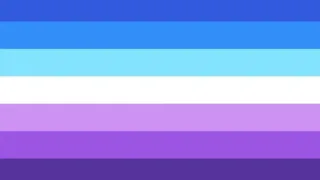December 2, 2015
'Femmes: A Tragedy' Reimagines 'The Women' With Queer Femmes
Winnie McCroy READ TIME: 6 MIN.
From December 4-13, "Femmes: A Tragedy" will come to the Twin Cities 20% Theatre Company, complete with an opening night party, post-show discussions with the writer Gina Young, and a special ASL interpretation. The play reimagines Clare Booth Luce's 1936 play "The Women" against a backdrop of the contemporary queer femme (sub)culture.
"I'd had a rough year as a queer femme, dealing with certain dynamics within the scene and certain imbalances within my relationships. I found this DVD called�'The Women' -- the 1939 film version of a play I remembered loving in theater school -- and as I watched it, my jaw hit the floor. I thought,�nothing�has changed," recalled writer Gina Young. "The interceding years of feminism have improved a million things of course, but women are still socialized to compete with each other and to prioritize men or masculinity. And for queer femmes, as a line in the�'Femmes'�script says, 'Even though nothing in society reflects us, everything in society has shaped us.' The script has done really well, winning the Jane Chambers Award for Playwriting and selling out to rave reviews in LA, and I'm thrilled that the play resonated with director Claire Avitabile and 20% Theatre Company so that they decided to stage it in Minneapolis."
"I was just super excited to find that a play existed about queer femmes, and written by a queer woman. I've never found that before," added director/producer Claire Avitabile.
The structure of the play mirrors Clare Boothe Luce's�'The Women'�almost exactly, but all the details are different. Instead of a group of wealthy white socialites, it's about a diverse group of lesbians from different ethnic and socioeconomic backgrounds. Instead of finding out her partner is cheating from a gossipy manicurist, the lead character finds out her partner is cheating from seeing pictures on a social media app. The characters represent a variety of real femme types, from the high femme diva drama queen to the academic who wears vintage and cat's eye glasses, from activists to fast food workers... both queer and straight audiences have really connected with these women.
When the curator of a burlesque show's polyamorous girlfriend drops her overnight for a hot bartender, her friends --�an activist, an academic and a party promoter --�are thrown into girl/girl competition despite their best feminist intentions, and are ultimately forced to parse the ways butch/femme relationships do or don't replicate heterosexual stereotypes.
Avitabile said that this dichotomy was true in some cases, noting that despite an increased awareness of the diversity of gender identities, butch and femme roles continue to be viewed as lesbian stereotypes that reinforce rather than challenge heteronormativity, though this is not always the case in reality.�
"Even though it might look 'straight' on the outside, it's completely queer from the inside. That's the beauty of our community," said Young.
Deconstructed burlesque interludes, with choreography by�Queen Von Curves, probe the boundaries of a visibly queer feminine aesthetic in this hit comedy/tragedy from the creator�of "Tales of a Fourth Grade Lesbo."
Young said that the burlesque interludes were inspired by Los Angeles roller derby, and the Seattle burlesque scene. The queer community is famous for variety shows, from drag to burlesque, political spoken word and more, sometimes all in the same lineup.�'Femmes'�centers around a group of friends who create these kinds of performances together, and the whole show leads up to a big variety show-within-a-show.
Burlesque in particular has been a place for queer femmes to explore gender roles and sexuality in a way that is political and empowering. (It's about being a sex subject instead of a sex object; we're beautiful and you can look at us, but we're controlling the story and how we want to be seen.) So burlesque seemed like a good starting point.
"I wanted to write a script that empowers actresses to create their own performance pieces," said Young. "It's so rare that female actors are given a voice, or allowed to play non-sexist roles. I want the director to be able to use the talents of the cast to address issues within their local community; things the actors feel are important. This allows room for anything I've overlooked as a white, cisgender playwright, or any new topics that come up in the future. Claire brought Queenie Von Curves on board to do choreography, and I hear she took the cast on a field trip to a drag show, too!"
Avitabile hopes the audience appreciates the universal situations of this play that are not just unique to queer femmes or lesbians, such as dealing with a break up, rumors, people talking shit and how ridiculously dumb that is but the fact that we're all guilty of it. She said she quite excited to produce and direct a show about queer femme identity -- an identity that is so invisible among the queer community.
"Femmes" is a work of femme visibility, said Young, explaining, "I wanted to stake our claim in the world -- we're here, we're a valid and extremely multi-faceted queer identity; we're definitely not 'just lesbians who look straight' and we have our own unique issues and struggles. I can't speak for all femmes, but I definitely put in a lot of research and created a very diverse set of characters who address things we face both inside our community and outside in the larger world. 'Femmes' is a celebration of femme identity and and also a critique and a hilarious satire at the same time."
The characters in "The Women" rip each other to shreds in the course of the play. The telling of "Femmes" follows a similar tact. As Avitabile notes, people can be cruel, regardless of gender, sexuality, race, religion, or class.
The original play, The Women, is an acerbic commentary on the pampered lives and power struggles of various wealthy Manhattan socialites and up-and-comers and the gossip that propels and damages their relationships (in the '30s). While men frequently are the subject of their lively discussions and play an important role in the action on-stage, they are strictly characters mentioned but never seen.
In "Femmes: A Tragedy," Young has placed the idea of this gossipy group of women in contemporary Los Angeles, and the characters are queer instead of straight. They talk about each other (positively and negatively) just the same, and gossip about women they are or have dated in similar ways.
The main exception, said Young, was that there was more redemption in the end of "Femmes."
"I have experienced femme/femme competition at its worst, but I've also experienced amazing femme solidarity, community and support. I tried to reflect that in the play," said Young. "Most movies and television shows aimed at women make a very clear distinction between 'good' women and 'bad' women, with a ton of backstabbing and competition that ends with the 'good' women winning and the 'bad' woman being shamed. 'Femmes' initially seems to follow that same pattern, but then in the end completely turns that formula on its head. And it's fun for the actresses too, because they get to be catty onstage, but then backstage they form a deep and lasting bond."
"Femmes" A Tragedy" will run from Dec 4-13 at Nimbus Theatre, 1517 Central Avenue NE, Minneapolis, MN, 55413. For tickets or information, visit http://www.tctwentypercent.org/season.html






